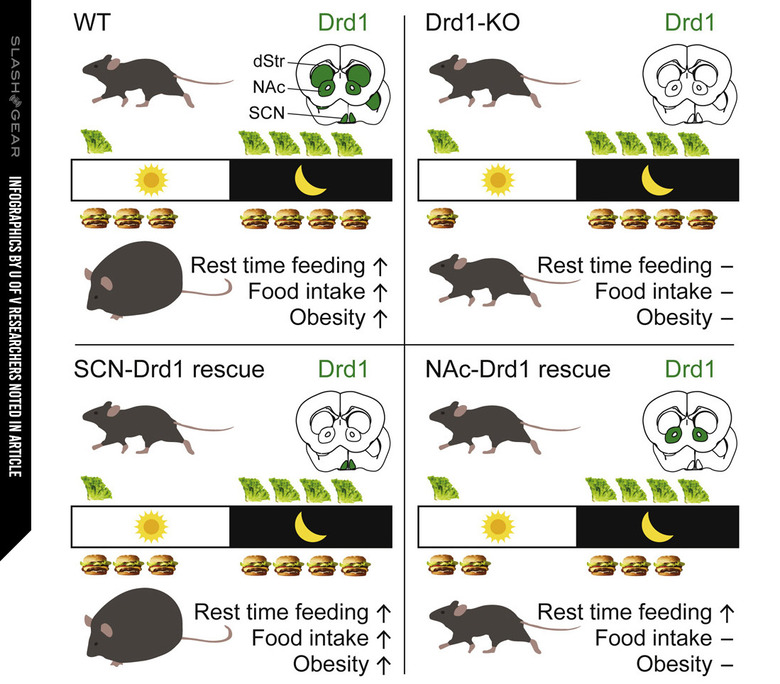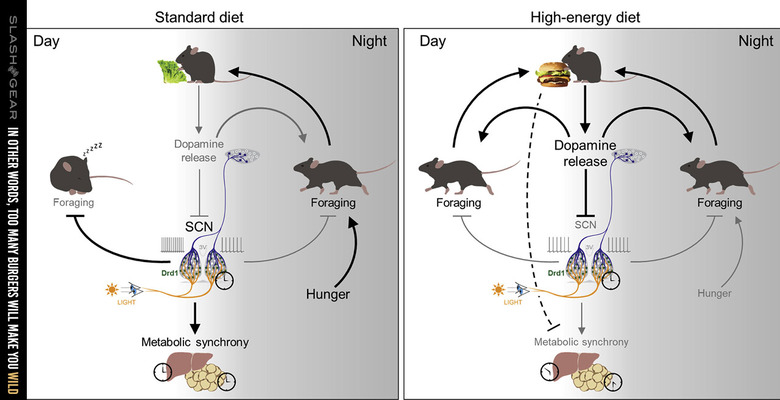Study Shows Avoiding Convenient Foods Leads To Better Health, Longer Life
A study conducted by researchers at the University of Virginia showed two key elements that, over time, "result in obesity and health-related problems." According to their study, those keys are any-time snacking and constant availability of a high-fat diet. The team, led by Professor of Biology Ali Güler of the University of Virginia, found that the modern convenience of 24/7 access to fatty foods are key in our struggle to live healthfully in 2020 and beyond.
With U of V, Güler shared a bit of insight into his work in this latest health research. "We've shown that dopamine signaling in the brain governs circadian biology and leads to consumption of energy-dense foods between meals and during odd hours." It's not that we've necessarily found ourselves in an all-is-lost type situation, only that we'd be better off exerting more self-control with regard to the consumption of food with some basic regularity.

"The diet in the U.S. and other nations has changed dramatically in the last 50 years or so, with highly processed foods readily and cheaply available at any time of the day or night," said Güler. "Many of these foods are high in sugars, carbohydrates and calories, which makes for an unhealthy diet when consumed regularly over many years."
What sort of "convenient" foods are bad? There is no one simple list. Instead, as a general rule, it would appear that foods you probably know aren't good for your health, tend to be the same foods one might consider convenient.

"Food is now abundant, and our next meal is as close as the kitchen, or the nearest fast-food drive-through, or right here on our desk," said Güler. "Often, these foods are high in fats, sugars, and therefore calories, and that's why they taste good. It's easy to over-consume, and, over time, this takes a toll on our health."
The study shows that when these always-available, instantly rewarding (dopaminergic signaling) foods are eaten at odd times, they mess with your body's natural food/sleep/etc rhythms. This new research shows that "dopaminergic signaling within the suprachiasmatic nucleus (SCN), the central circadian pacemaker, disrupts the timing of feeding, resulting in overconsumption of food."
It's not just important WHAT you eat, it's important WHEN you eat it! Below you'll see a chart made by the researchers at U of V, made with rats (since this part of the study was conducted with lab rats.) Look at that cute little burger!

You can learn more about the study by reading the paper Dopamine Signaling in the Suprachiasmatic Nucleus Enables Weight Gain Associated with Hedonic Feeding. This paper was published with code DOI:10.1016/j.cub.2019.11.029 and authored by Ryan M. Grippo et. al. Research was funded by the The National Institute of General Medical Sciences and University of Virginia Brain Institute.
